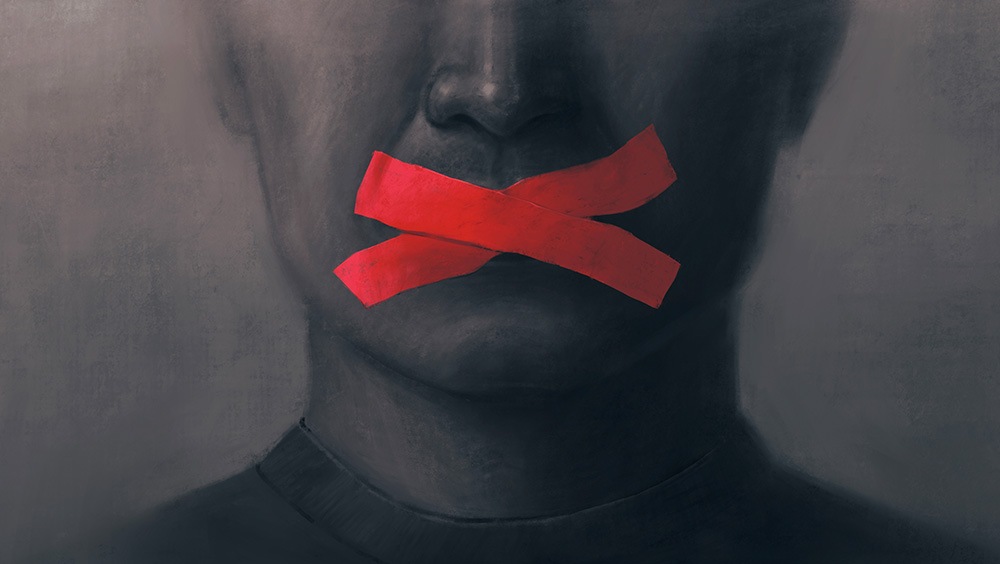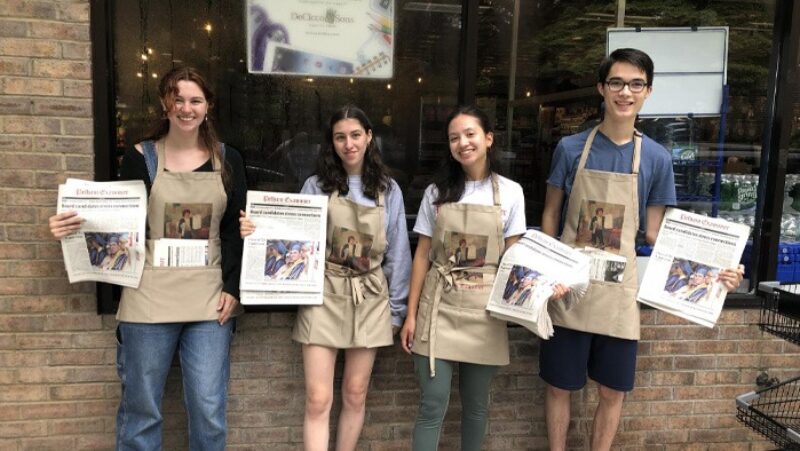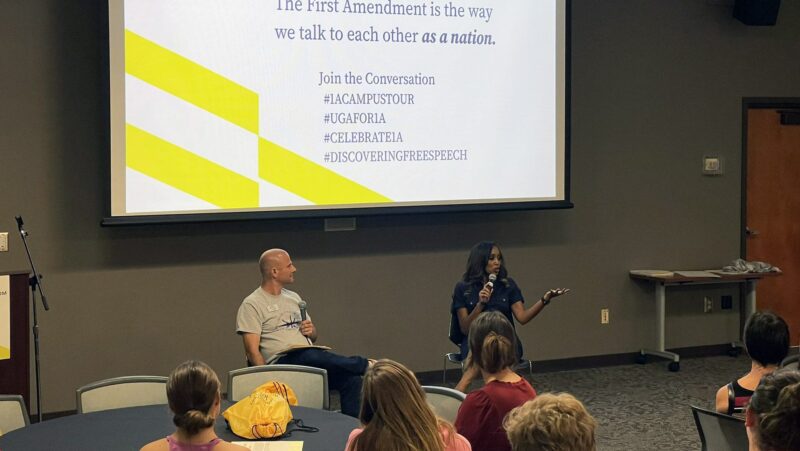Chilling Effect: Discouraging the Use of Our First Amendment Freedoms

A law or government action has a “chilling effect” when it is so vague or so broadly written that even when dealing with another issue it has the effect of restricting or deterring the use of our First Amendment rights.
A law is vague when a person is unable to determine when certain speech or expressive conduct is protected by the First Amendment. A law is too broadly written when it might incidentally discourage legitimate free speech or conduct.
Consider a 2010 U.S. Supreme Court decision in United States v. Stevens that voided a law banning the creation and distribution of videos showing cruelty to animals. The court said the law as written might also be used to punish the creators of videos showing legal hunting activities.
A current focus on the idea of a chilling effect involves proposed laws permitting the government to edit or regulate certain kinds of content on social media sites. Opponents of such regulations fear that restricting unwanted content – harmful misinformation, for example – also will sweep up what should be protected speech, particularly on political or controversial social issues such as what constitutes hate speech.
Chilling effect on free expression a major concern
The Supreme Court has considered the idea of a chilling effect in several free expression decisions.
In New York Times Co. v. Sullivan, a 1964 decision involving freedom of the press and speech, the court ruled that inadvertent false statements are inevitable in public debate. The court said overly restrictive libel laws would deter people from participating in otherwise protected speech, causing in this case what Justice Arthur Goldberg said was “the chilling effect of the Alabama libel laws on First Amendment freedoms in the area of race relations.”
In 2012, in United States v. Alvarez, the court used the idea of a chilling effect to void a law making it illegal to falsely claim having received military medals. It said the law, as written, “would give government a broad censorial power” and that the “mere potential for the exercise of that power casts a chill” on potential speakers.
In 2023, in Counterman v. Colorado, the court overturned the conviction of a man charged with making violent threats. In setting out new standards to evaluate such speech, Justice Elena Kagan warned that without the new standards, a speaker could be chilled by the “fear of mistaking whether a statement is a threat; his fear of the legal system getting that judgment wrong; [or] his fear, in any event, of incurring legal costs.”
Chilling effect can take on other forms
What are known as “anti-SLAPP laws” recognize that lawsuits – filed or just threatened – can also chill First Amendment freedoms. SLAPP stands for “strategic lawsuit against public participation.” The laws prevent the use or the threat of substantial legal costs and a lengthy legal process to discourage or punish a person or group holding opposite or critical views.
Laws that prompt self-censorship can also “chill.” As of July 2024, sixteen states require adults to confirm their age and identity online to access sexually explicit material on the web. The laws are intended to prevent minors from seeing such material. But opponents say the laws inhibit adults, who have a First Amendment right to view such materials, by making them fearful of future government retaliation or of later being publicly identified by government to their community, families or employers. In its 2024-25 term, the Supreme Court will take up the issue of whether such laws violate adult's First Amendment rights.
Loyalty oaths have been another area in vague or broadly written laws that have been found unconstitutional because they could deter legitimate dissent or discourage other protected activity.
Some oath laws have failed to provide specific definitions of loyalty, preventing people from knowing what they were swearing to do or not do.
In 1952, the Supreme Court in Wieman v. Updegraff voided an Oklahoma loyalty oath for educators and other public employees. In agreeing with the decision, Justice Felix Frankfurter said such oaths have “an unmistakable tendency to chill that free play of the spirit which all teachers ought especially to cultivate and practice,” and they could discourage teachers from association with others who hold unpopular views.
On the other hand, oath laws that are specific don’t “chill.” In Gerende v. Board of Supervisors of Elections of Baltimore, the court in 1951 upheld a Maryland oath law that required potential political candidates to state they were not involved in any attempt to overthrow the government “by force or violence.”
Protecting a range of First Amendment freedoms from a chilling effect
Public protests such as those of Black Lives Matter also have sparked proposals or laws that indirectly may inhibit free speech or freedom of assembly, such as requiring groups to post excessive bonds to receive permits to demonstrate or setting higher than usual bond amounts for those arrested during a protest.
In deciding The American Legion v. American Humanist Association in 2019, the court rejected a group’s demand for removal of a decades-old, 40-foot “Peace Cross” on publicly maintained land at a three-way intersection, honoring those who died in World War I. The group said the cross wrongly indicated government support for the Christian faith.
Justice Samuel Alito Jr., in writing the majority opinion, speculated on the indirect chilling effects of ordering removal: “A government that roams the land, tearing down monuments with religious symbolism and scrubbing away any reference to the divine will strike many as aggressively hostile to religion.”
In the 1940s and 1950s, the House Un-American Activities Committee investigated allegations of communist activity in the U.S. Critics said the committee’s actions chilled Americans’ rights to free speech and protest. In reaction to HUAC’s inquiry into supposed communist influence in Hollywood, more than 300 writers, directors and others lost jobs or were unemployable in the film and television industries. They were “blacklisted.” HUAC became unpopular during the Vietnam War era and was abolished by Congress in 1975.
In a 2021 article in the Harvard Journal of Law & Technology, Indiana University law professor Suneal Bedi wrote that a form of chilling effect may be a positive thing. “By changing only the tone of how individuals speak, rather than the actual content or purpose of a message, the chilling effect can encourage more civil forms of speech that are less offensive. When individuals are less offended, they are more likely to engage in thoughtful exchanges,” he wrote.
Gene Policinski is a senior fellow for the First Amendment at Freedom Forum.
Meet Georgia, One of 42 Unique Professionals Stepping up for Their Hometown
University of Georgia students talk speech on campus
Related Content
$30,000 Giving Challenge
Support the Freedom Forum’s First Amendment mission by Dec 31st and double your impact.

